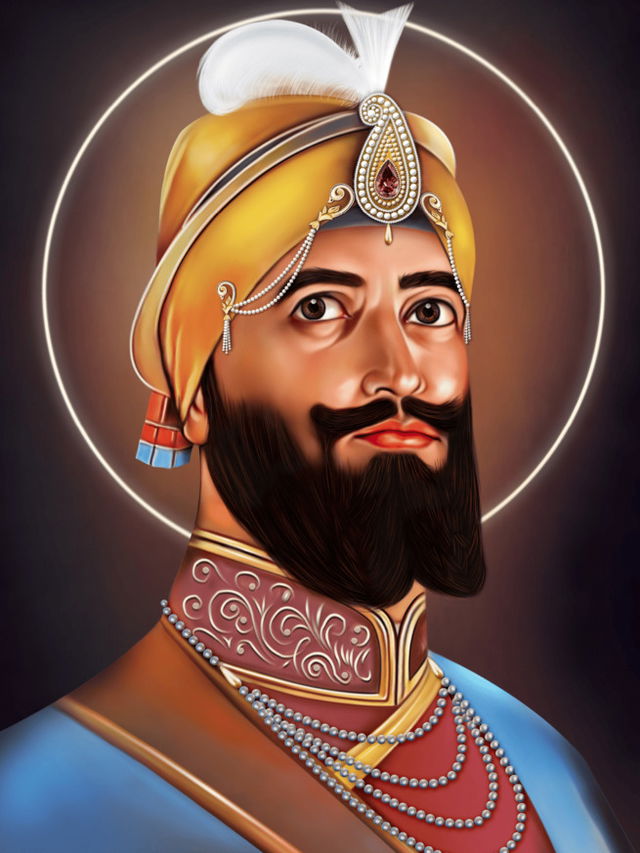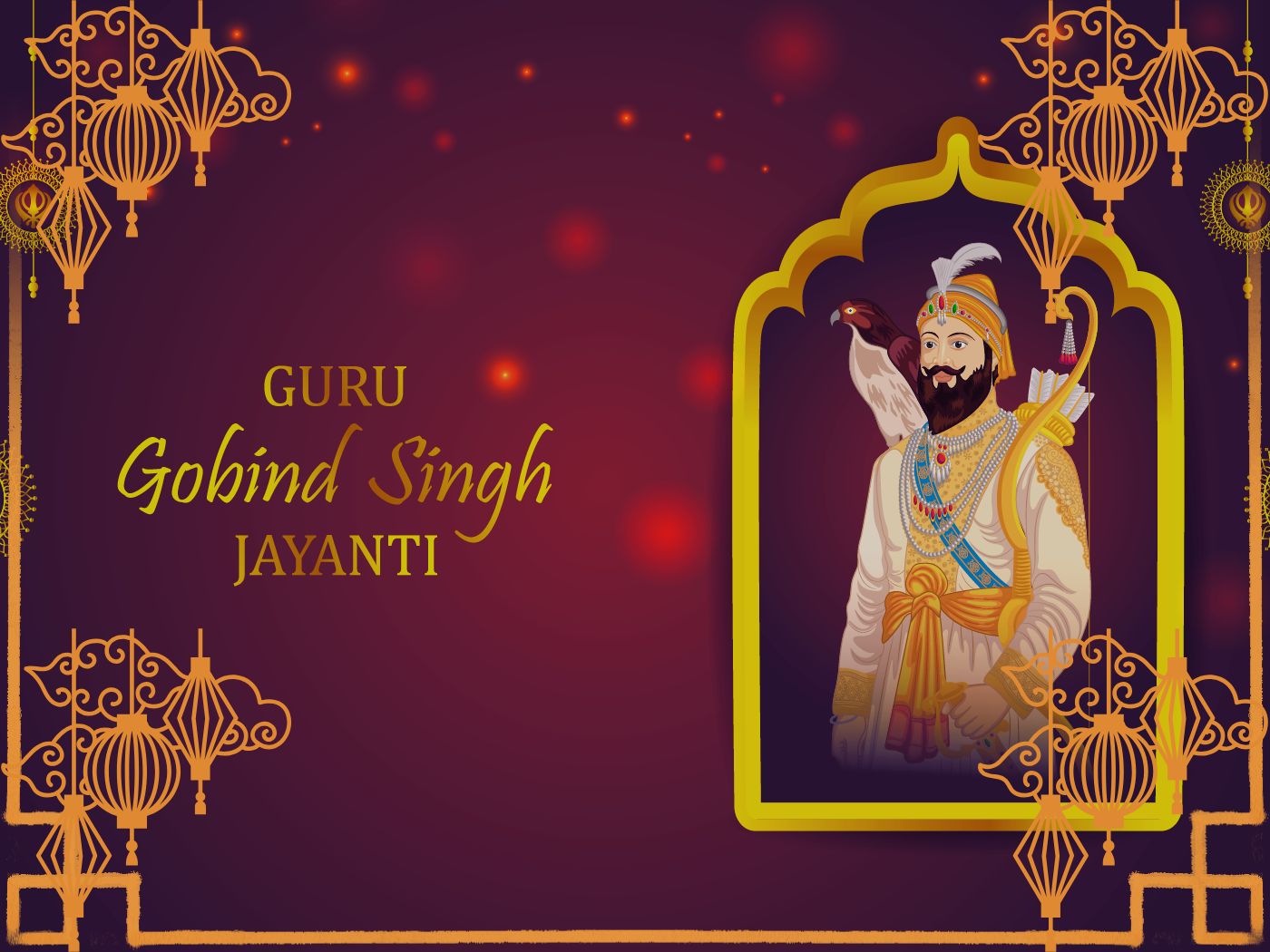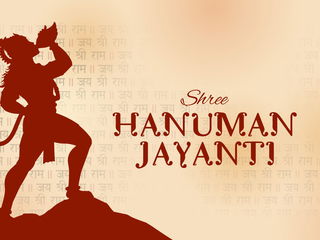- Calendar
- Calendar 2026
- January
- Guru Gobind Singh Jayanti
Guru Gobind Singh Jayanti
Guru Gobind Singh Jayanti will be observed on January 06, 2025, in the majority of states while few other states like Punjab, Chhattisgarh, and Haryana would observe it on December 27th 2025.
The date shifts each year, following the Nanakshahi calendar, the Sikh lunar calendar.
This day is dedicated to the tenth and the last human Sikh Guru born on December 22, 1666.
Guru Gobind Singh’s birth anniversary is celebrated with great enthusiasm within the Sikh community, marked by prayers, processions, and special events held at Gurudwaras. Renowned for his spiritual and courageous leadership, Guru Gobind Singh established the Khalsa, a community dedicated to upholding Sikh values and justice.\
In India, Guru Gobind Singh Jayanti is an optional holiday, offering flexibility for individuals to celebrate within the country’s diverse religious landscape. Most government offices, businesses, and public services remain open.

The Life And Legacy of Guru Gobind Singh
Guru Gobind Singh who was the last and tenth human Sikh Guru was a renowned and spiritual leader and teacher. He dedicated his life to protecting the people, seeking justice, and establishing Sikhism as an independent community.
He was the only son of Guru Tegh Bahadur who was the ninth Sikh Guru and Mata Gujri, and he displayed both physical prowess, intellect, talent in languages, studying scriptures and martial arts from a very young age.
His father attained martyrdom after being executed for standing against forced conversions by Aurangzeb the Mughal emperor. Gobind Rai later who became known as Guru Gobind Singh was only nine year old when he became the next Sikh Guru.
Irrespective of his age, he demonstrated commendable wisdom and courage, continuing to pursue philosophy, spiritual guidance, and the art of war, preparing himself to defend and guide the Sikh community.
The Foundation of Khalsa
In 1699, Guru Gobind Singh called Sikhs to gather at Anandpur on Vaisakhi, the spring harvest festival.
During this gathering, he asked for five volunteers willing to sacrifice their lives. Each volunteer entered a tent with him, and each time, Guru Gobind Singh emerged alone with a sword stained with blood, leaving the crowd wondering.
Finally, after the fifth volunteer entered, he returned with all five men, unharmed. He called these men the Panj Pyare (“The Five Beloved Ones”) and declared them the first Khalsa, or “pure ones,” of the Sikh community.
Guru Gobind Singh prepared a special drink called Amrit (nectar) by mixing water and sugar in an iron bowl, stirring it with a double-edged sword.
He gave this Amrit to the Panj Pyare, baptizing them as Khalsa, and then asked them to baptize him as well, making him part of the Khalsa too.
From that moment, he became known as Guru Gobind Singh.
He established a code for the Khalsa, including the “Five Ks,” symbols of their faith and unity:
- Kesh (uncut hair)
- Kangha (a wooden comb)
- Kara (an iron bracelet)
- Kirpan (a small sword)
- Kachera (a type of special shorts)
The Guru also emphasized equality within the Khalsa, allowing men and women from all castes and backgrounds to join. He instructed the Khalsa to stand for justice and resist oppression, especially against the Mughal Empire, which was persecuting non-Muslims at the time. This foundation of the Khalsa helped strengthen Sikhism and created a new, unified community of dedicated followers.
Impact of Guru Gobind Singh
Guru Gobind Singh fought several battles against the Mughal Empire to protect those fighting for the freedom of faith. However, tragedy hit him soon enough, and he lost all his four sons to conflicts with two dying in the battlefield and two were executed for refusing to convert.
He was also a talented poet and philosopher, composing significant spiritual texts, such as Jaap Sahib and Chandi di Var, and writing about courage, devotion, and the fight against tyranny.
He compiled the Dasam Granth, which includes various stories and hymns.
He also declared the Guru Granth Sahib, the central Sikh scripture, as the eternal Guru of the Sikhs, ensuring that the teachings would continue to guide the community after his passing.
Guru Gobind Singh emphasized devotion to God, moral strength, and courage. His final message to his followers included a reminder that when all peaceful means are exhausted, it is justified to stand up and fight for justice. This idea is central to the Sikh spirit of resilience.
Guru Gobind Singh passed away on October 7, 1708, but his legacy lives on. He shaped Sikhism into a distinct, strong faith and community that continues to value courage, justice, and equality.
Significance of Guru Gobind Singh Jayanti
Guru Gobind Singh Jayanti pays tribute to the values he represented like service, courage, and spiritual devotion. On this day Sikhs celebrate and looks back at his life and how he was the epitome of compassion and strength and how much he was committed to equality and justice.
Traditions of Guru Gobind SIngh Jayanti
- Akhand Path: Gurdwaras (Sikh temples) host a continuous 48-hour reading of the Guru Granth Sahib, symbolizing blessings and prosperity.
- Processions and Nagar Kirtan: Led by the Panj Pyare (Five Beloved Ones), Nagar Kirtans include traditional music, Gatka (Sikh martial arts), and hymns, celebrating Guru Gobind Singh’s legacy.
- Hymn Singing and Kirtan: Devotional singing, or Kirtan, brings Sikhs together to reflect on Guru Gobind Singh’s teachings.
- Community Langar: Free community meals are served at Gurdwaras, upholding Sikh values of service, unity, and humility.
Observing Guru Gobind Singh Jayanti
Guru Gobind Singh Jayanti is celebrated by Sikh communities worldwide, especially in India, Canada, the United States, the UK, and Australia.
The day is observed with prayers, gatherings in Gurdwaras, and community meals, fostering a sense of shared heritage and devotion.
Guru Gobind Singh’s teachings emphasize unity and respect for all, regardless of background, promoting equality.
He also instilled courage and conviction in individuals, encouraging them to stand firm in their beliefs even in the face of adversity.
His teachings highlight the importance of service and compassion, with practices like langar emphasizing selflessness and community service.
Guru Gobind Singh Jayanti, therefore, celebrates the core values of courage, equality, and dedication that he embodied. His legacy continues to inspire Sikhs and people from all walks of life to live with purpose, justice, and compassion.

Other Celebrations
-
May 09 Fri
-
May 27 Tue
-
Jun 11 Wed
-
Jul 10 Thu
-
Nov 05 WedGuru Nanak Jayanti Holiday
-
Feb 01 Sun










